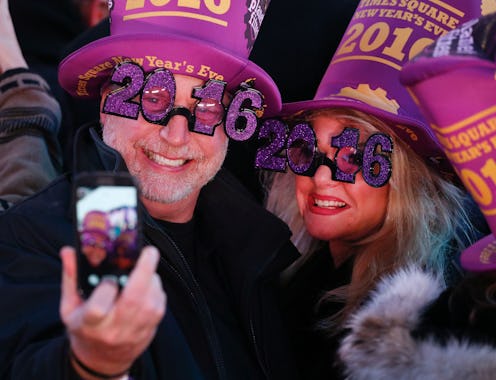Life
Have Gender Perceptions Really Changed By 2016?
There's an idea, especially in progressive circles, that the overall history of social issues is one of, well, progress. Everyone likes to think that things today are better than they used to be. However, things don't always work out that way — as evidenced by the fact that gender stereotypes are as common today as in the 1980s. Thirty years later, and we don't have progress so much as, if anything, a little backsliding. So there's that.
In a new study published in the journal Psychology of Women Quarterly, researchers decided to recreate an experiment conducted over 30 years ago in 1983 that dealt with perceptions of gender and with gender stereotypes. "The gender landscape in the United States has changed in many respects over the past three decades," the researchers explain in the study. "In the workplace, on sports fields, and in educational institutions, women today have more representation and more visibility than they had 30 years ago, as verified by numerous objective indicators."
They added, "These numbers can seem impressive, suggesting considerable progress over the past 30 years. Yet from a glass-half-empty perspective, evidence indicates that gender parity is nowhere near a reality today."
The Study
So what happens when you ask people the same questions they were asked about gender in 1983? As part of their research, scientists asked 191 college students were asked to estimate the likelihood that man, a woman, or a person of unspecified gender would have a given set of traits, some of which were stereotypically masculine, some of which were stereotypically feminine.
The set up, the sample size, and the questions were designed to mimic a 1983 study done by researchers Deaux and Lewis — though some questions were modified to be more applicable in modern times, now that we don't have things like "key punch operators."
The Results
Despite what you might assume about people today being more enlightened when it comes to gender identity, in fact, things aren't so rosy. Researchers found that the results they obtained were eerily similar to the ones obtained by Deaux and Lewis. It seems that gender stereotyping is just as prevalent today as it was in the early 1980s.
"Over 30 years ago, Deaux and Lewis (1983) reported strong stereotypes of women and men—not only on traits but also for social roles, occupations, and physical characteristics," the authors write. "In the current study, we continued to find strong stereotyping and a great deal of consistency with the stereotyping reported in the past."
They added, "Despite differences in samples and in time periods, there was virtually no difference in the degree to which beliefs about typical men and women were differentiated on agentic and communal traits, male gender roles, male and female occupations, and male and female physical characteristics." The only minor difference seemed to be a small increase in stereotyping women's gender roles.
Great.
So how is this even possible? After all, it seems like women are breaking down barriers all over and as though our cultural ideas about gender roles are changing all the time. What with everything from the record high number of women in Congress to the record acceptance of the LGBTQ community and all the deconstruction of gender roles that implies, how can it be that people still hold onto stereotypes about gender?
The researchers explain there could be a variety of explanations, including "stereotype maintenance via confirmation bias, cultural lag, backlash, and essentialist categorical beliefs." But the bottom line is, progress hasn't been as total as we'd maybe like to think it is.
In some ways, perhaps this isn't surprising. After all, the idea of human history as one uniform march towards greater equality and egalitarian views is overly simplistic. For one thing, ideas about women's role in society have varied widely throughout history and have often been very complex. For another, there have also been lots of time periods where women's status has either stalled or gotten worse like, say, the Victorian Era in England.
But even knowing these periods in history exist and are bound to happen, I'd just as soon not be living in one. So maybe we can try to work on this and ditch the gender roles already? They're kind of awful, for men and women.
Image: Giphy
